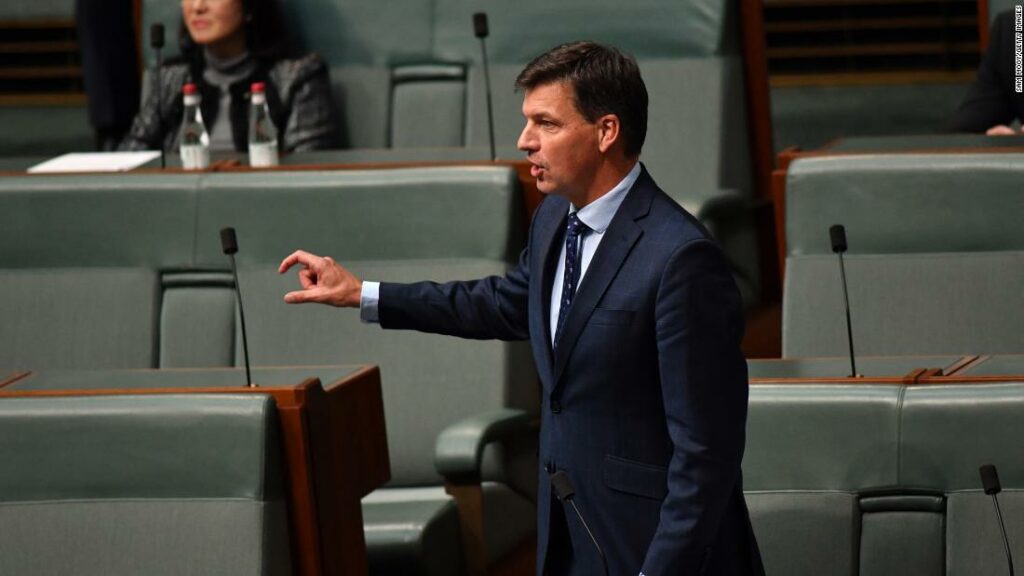Australia’s energy minister dismisses call for tougher carbon emission limits

Prime Minister Scott Morrison is working on securing support from the Liberal Party’s rural partner, the Nationals, to back a target of net zero by 2050 and possibly a more ambitious target for 2030 than Australia’s existing pledge to cut emissions by 26-28% from 2005 levels, ahead of the UN climate conference in Glasgow.Yet, the Business Council of Australia — which represents the country’s biggest companies including miners, gas and power producers — said over the weekend that emissions reductions of up to 50% below 2005 levels by 2030 could be achieved with big benefits for the economy.Addressing an energy and climate conference on Monday, Energy Minister Angus Taylor swiftly shot down the council’s recommendation that the government strengthen its “Safeguard Mechanism” by requiring businesses that emit more than 25 million tonnes a year to buy carbon offsets, compared with the current threshold of 100 million tonnes a year.The Safeguard Mechanism and the carbon offset market sets Australia’s carbon price, which last week rocketed to a record high, but was still less than one-third the carbon price in the European Union, which has much stricter emission limits.”A substantial tightening of the Safeguard Mechanism is a backdoor carbon tax consumers will ultimately have to pay for, and that’s not acceptable,” Taylor said at conference organized by the Australian Financial Review.Australia is the world’s fourth largest energy exporter, and Taylor said the government’s main goal was to protect key industries, including gas, coal, heavy manufacturing and agriculture, while also promoting hydrogen, carbon capture and storage and soil carbon to cut emissions.The government would stick to providing incentives to cut emissions rather than punishing polluters, he said.”That means avoiding explicit carbon taxes or backdoor pathways to a carbon tax — sneaky carbon taxes.”Taylor’s speech came the same day that Australian billionaire Twiggy Forrest, an outspoken critic of the government’s energy policies, announced he would build the world’s biggest electrolyzer factory in Australia to further his ambition to produce green hydrogen.


